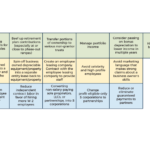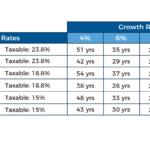
 Welcome back to the 94th episode of the Financial Advisor Success podcast!
Welcome back to the 94th episode of the Financial Advisor Success podcast!
This week's guest is James Osborne. James is the founder of Bason Asset Management, a solo advisory firm based in the Denver suburbs that oversees more than $225 million of assets under management.
What's unique about James, though, is the unusual way that he structured his advisory business, with a simple flat fee of $4,800 per client regardless of their assets, which has allowed him to build a high-margin solo practice with just 80 clients generating nearly $400,000 of revenue for the firm at the age of just 35 years old.
In this episode, we talk in depth about why James decided to structure his firm using this flat fee approach in lieu of the AUM model. How the design of his business model makes it possible for him to generate a target of his exact income potential as he reaches client capacity, the way he handles situations where his flat fee would be substantially lower than what another advisor's AUM fee might be for prospective clients with a lot of assets and net worth, and the reason that he chose to deliberately build a business model that fits his personal lifestyle and family goals.
We also talk about what it really means to reach personal capacity as a financial advisor. The challenging trade-offs that start to emerge as advisory firms try to grow beyond the individual capacity of the founder, why it is that beyond a certain point, doubling the number of clients and revenue at the practice has almost no impact on the take-home compensation of an advisor, and the reason that so many solo advisory firms will actually generate far more value for their founders by staying small even if the practice is never sold.
And be certain to listen to the end, where James talks about how he's adjusting the way he meets with and takes on prospective clients as he approaches his personal capacity, and what he plans to do to maintain his high-income lifestyle practice once he reaches that threshold.
So, whether you're interested in learning about some of the benefits of a flat-fee structure, how James approaches investment management, or why most advisors are scaling their practices all wrong, then we hope you enjoy this episode of Financial Advisor Success Podcast.









